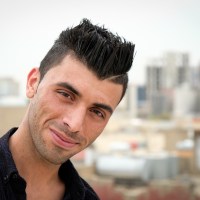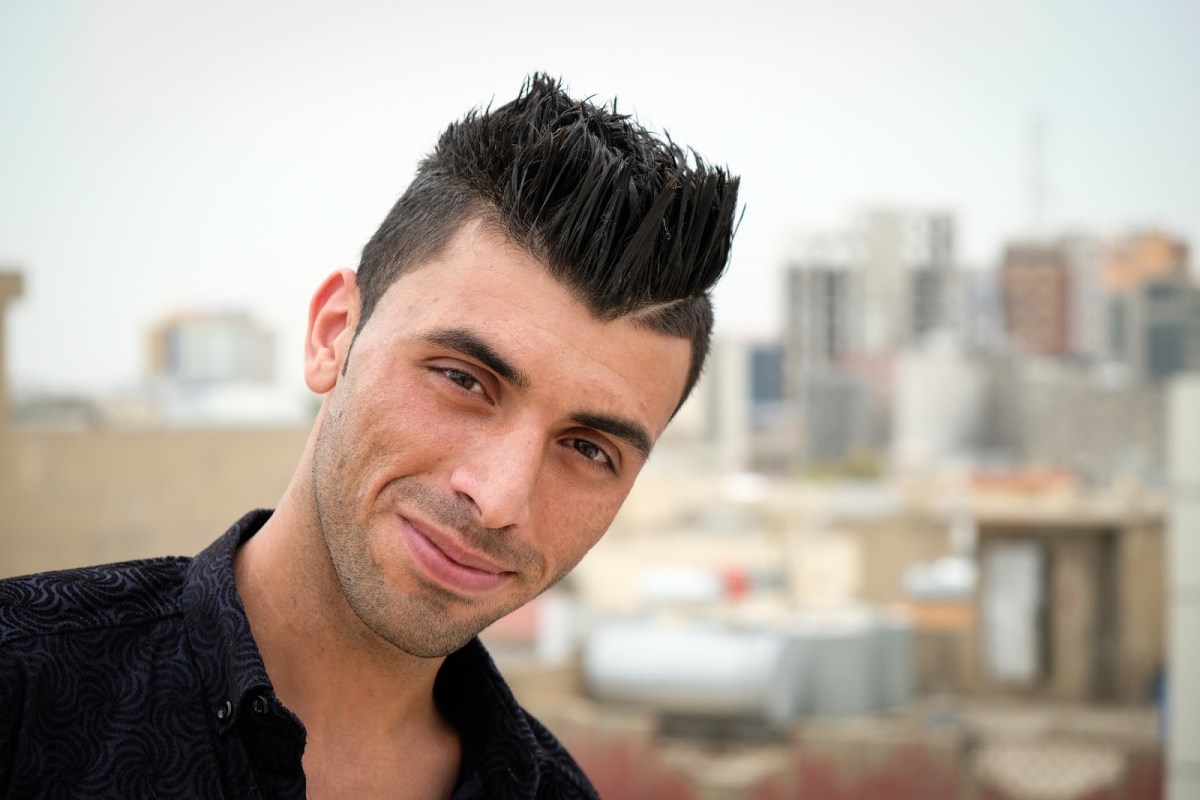Ahmad takes magic markers from his pocket, sits down in front of a stack of fresh, white paper, and begins to write. The letters he forms are beautiful—calligraphy that gives visual beauty to the phrases he writes.
As he finishes, he notices a mistake. The sheet of paper is quickly taken from the pile, scrunched into a tight ball, and dropped to the floor.
A fresh sheet of paper in front of him, Ahmad starts again.
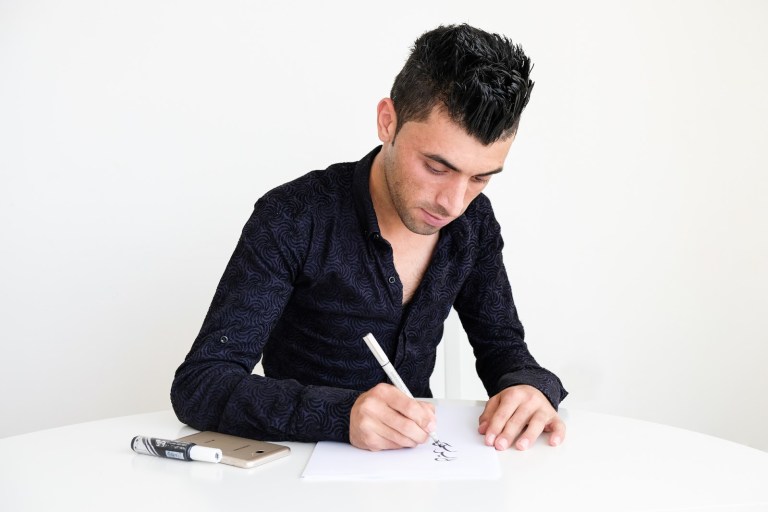
When Ahmad was a young man in Syria, his father used to bring home broken mp3 players for him to experiment with. Endlessly curious, Ahmad learned how to repair electronics by taking apart what was broken, breaking it down to component parts, then putting it back together. Ahmad joked that what took five minutes to take apart, took hours to reassemble.
Ahmad, a refugee, has lots of practice in starting from scratch.
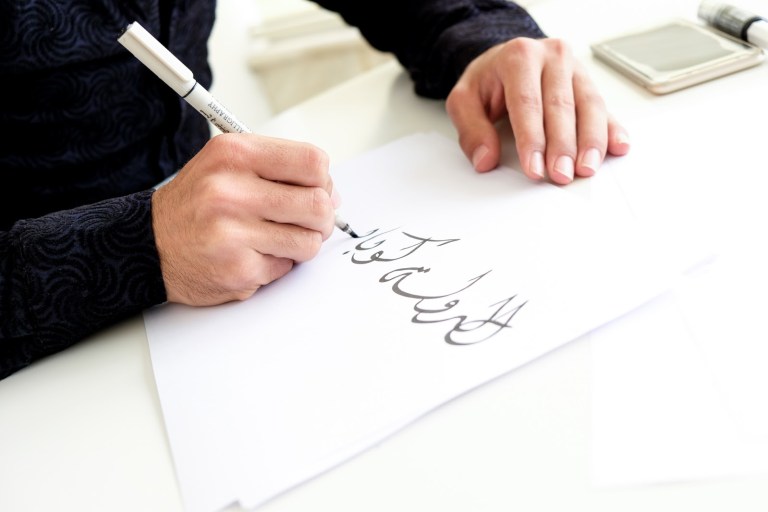
We sit together in an office at our first WorkWell campus, where refugees gain the skills they need to work as freelance designers, coders, and web developers. You can just hear the murmur of classes going on in rooms nearby.
As Ahmad tells us the story of how he came to Iraq, the clean, bright space at WorkWell feels a world away from the Syrian checkpoints where Ahmad faced some of the most terrifying moments of his life.
Ahmad was just 16 years old—an 11th grade student—when he fled his family home in Kobane, Syria alone.
His first plan was to move to Aleppo and finish school there—until Aleppo was crushed in a wave of bombings and air raids that flattened the city.
His next plan was to go to Istanbul, stay with a friend, and work there. Along with many others, he boarded a bus to make the trip into Turkey. Eventually they came to a checkpoint controlled by the group Al-Nusra—sometimes called “al-Qaeda in Syria.”
That’s when a nerve-wracking trip for a teenage boy turned into something much more serious.
Al-Nusra militants stopped the bus, and asked if there were any Kurds onboard. The Kurds are a minority population in Syria, just as they are in Iraq. It was their protests of unfair treatment, and the subsequent government clampdown, which became one of the sparks for war. Four young men on the bus raised their hands, including Ahmad.
The soldier demanded they say “the prayer,” to test them to see if they were “faithful Muslims.” Two of the young men didn’t know how to pray—they were taken from the bus, and Ahmed never saw them again.
The bus continued to Turkey, where Ahmad was captured by the Turkish Army. After an interrogation, he was handed back to Al-Nusra. Ahmad, a high school student with a love for playing the keyboard and photographing beautiful flowers, was held by the militants for four days. They tried to convince him to join their organization and to carry a weapon. He was beaten once, when he didn’t wake up for the dawn prayer.
Ahmad was held captive in the same house as another man. Together they decided to escape and ran away. They got to Turkey, and then from Turkey Ahmad made his way to Iraq, where he finally found safety.
Anyone who thinks refugees take the easy way out has probably never met one.
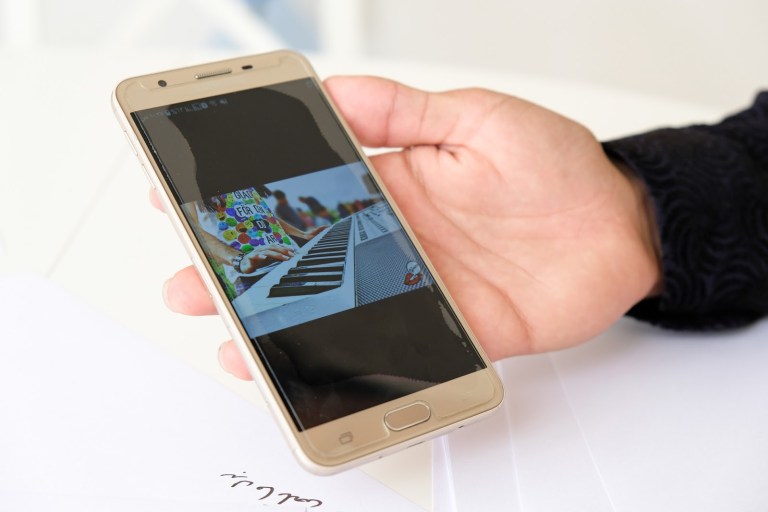
Sitting across the table from Ahmad as he fills sheets of paper with beautiful script, it’s difficult to reconcile the story of terror he tells with the young man we see in front of us. It’s so hard to think of this clean-cut young man, a student, a creative who cares about the details of his work, having faced such terror. And yet we know this is the story shared by so many of those we partner with.
Just like the days when Ahmad took apart broken mp3 players in order to put them back together again, better and functional, he is putting his life back together from scratch.
He dreams of having a family in the future, a good job, and a house of his own. He dreams of becoming a software engineer.
Leaving Syria as a teenager made each of his dreams more complicated to realize. Four years have passed, and at 20 years old, there is a lot of social pressure for Ahmad to forget his dreams of a good life and take whatever unskilled job he can get.
But Ahmad isn’t giving up.
Classes at WorkWell allowed Ahmad to take steps towards his future, and to make up for lost time. The half-day class schedule at WorkWell allowed him to attend high school classes at the same time—the first step needed to attain his dreams. Not only did he learn the basics of tech skills, he also learned freelancing fundamentals that will give him plenty of flexibility in the years to come.
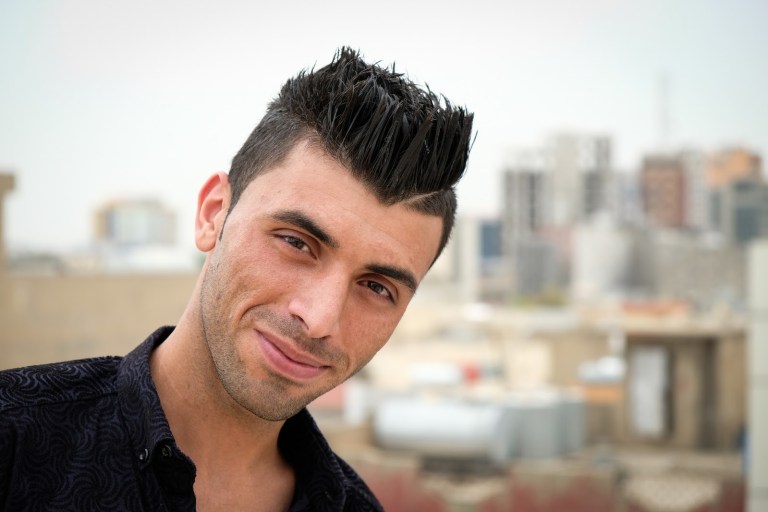
We all need someone in our corner in order to reach our potential. That’s even more important for young men like Ahmad. He dodged death while fleeing war, he certainly isn’t afraid of working hard to build a good life.
When you give to empower refugees like Ahmad, when you make places like WorkWell possible, you help to restore opportunities stolen by war.

